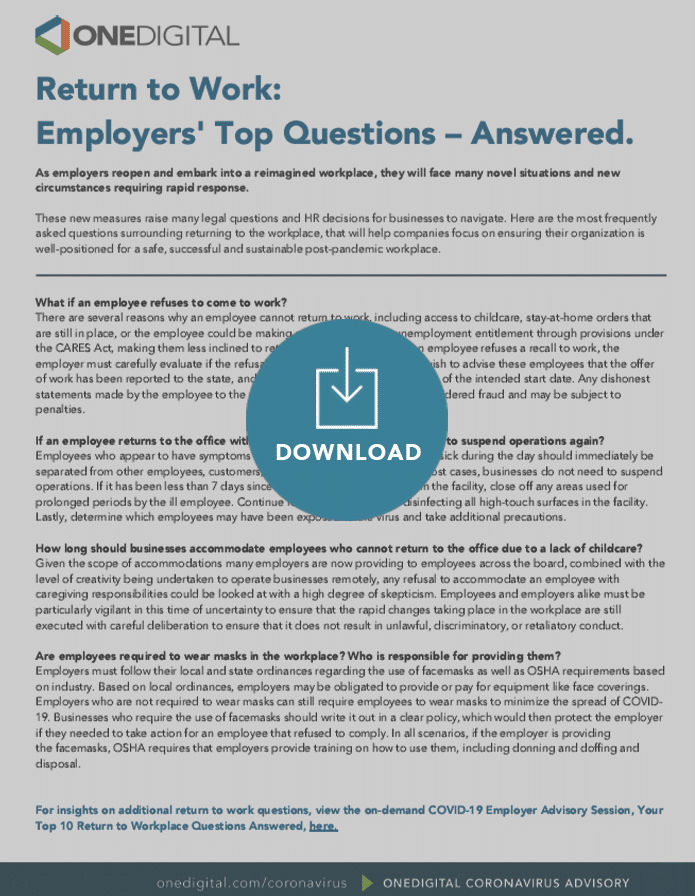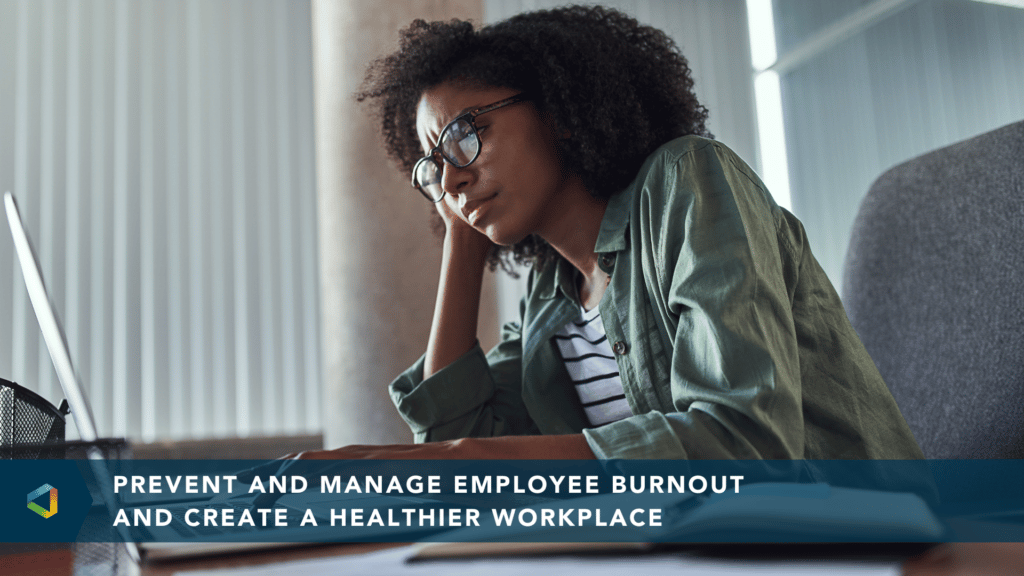No Headaches
Return to Work: Employers' Top Questions – Answered.
Return to Work: Employers' Top Questions – Answered.
↓ Want to download this? Click here to download the InfoBrief.↓
As employers reopen and embark into a reimagined workplace, they will face many novel situations and new circumstances requiring rapid response.
These new measures raise many legal questions and HR decisions for businesses to navigate. Here are the most frequently asked questions surrounding returning to the workplace, that will help companies focus on ensuring their organization is well-positioned for a safe, successful and sustainable post-pandemic workplace.
What if an employee refuses to come to work?
There are several reasons why an employee cannot return to work, including access to childcare, stay-at-home orders that are still in place, or the employee could be making more through their unemployment entitlement through provisions under the CARES Act, making them less inclined to return. In all scenarios, when an employee refuses a recall to work, the employer must carefully evaluate if the refusal is reasonable. Employers may wish to advise these employees that the offer of work has been reported to the state, and unemployment benefits will stop as of the intended start date. Any dishonest statements made by the employee to the unemployment agency would be considered fraud and may be subject to penalties.
If an employee returns to the office with COVID-19, does the business need to suspend operations again?
Employees who appear to have symptoms upon arrival at work or who become sick during the day should immediately be separated from other employees, customers, and visitors and sent home. In most cases, businesses do not need to suspend operations. If it has been less than 7 days since the sick employee has been in the facility, close off any areas used for prolonged periods by the ill employee. Continue routinely cleaning and disinfecting all high-touch surfaces in the facility. Lastly, determine which employees may have been exposed to the virus and take additional precautions.
How long should businesses accommodate employees who cannot return to the office due to a lack of childcare?
Given the scope of accommodations many employers are now providing to employees across the board, combined with the level of creativity being undertaken to operate businesses remotely, any refusal to accommodate an employee with caregiving responsibilities could be looked at with a high degree of skepticism. Employees and employers alike must be particularly vigilant in this time of uncertainty to ensure that the rapid changes taking place in the workplace are still executed with careful deliberation to ensure that it does not result in unlawful, discriminatory, or retaliatory conduct.
Are employees required to wear masks in the workplace? Who is responsible for providing them?
Employers must follow their local and state ordinances regarding the use of facemasks as well as OSHA requirements based on industry. Based on local ordinances, employers may be obligated to provide or pay for equipment like face coverings. Employers who are not required to wear masks can still require employees to wear masks to minimize the spread of COVID-19. Businesses that require the use of facemasks should write it out in a clear policy, which would then protect the employer if they needed to take action for an employee that refused to comply. In all scenarios, if the employer is providing the facemasks, OSHA requires that employers provide training on how to use them, including donning and doffing and disposal.
Click here to download Return to Work: Employers' Top Questions – Answered





